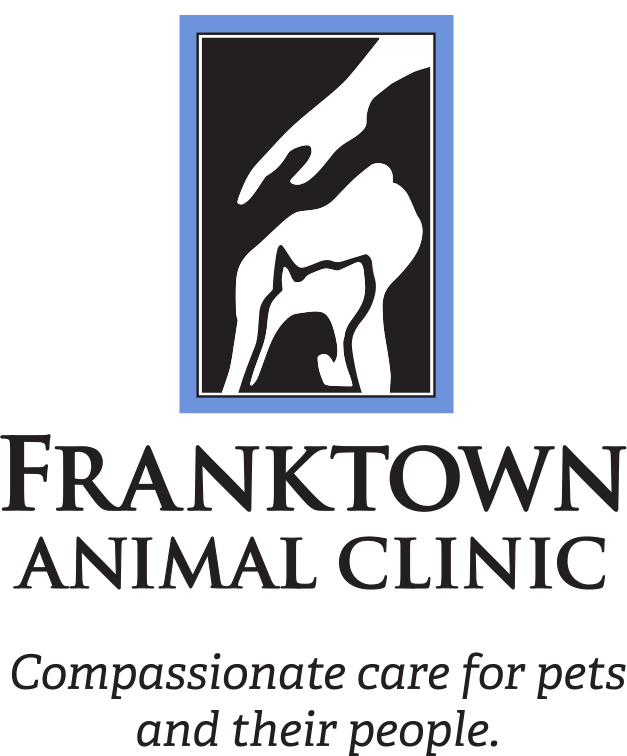By Dr. Jen Menning
Time flies when you have a pet you love. Seemingly in the blink of an eye, your adorable, excitable puppy has grown into a mature, 10-year old, graying senior dog. Our pets are living longer than ever these days thanks to caring and dedicated owners, along with significant advances in veterinary medicine. But what does a senior pet look like? What new ailments should you be aware of that your pet may encounter?
First of all, the terms “senior” or “geriatric” mean different things to different species and breeds of animals. It is not uncommon for a cat to live to be 18-20 years old! Therefore, we generally don’t consider cats seniors until they reach 10 years of age. Giant breed dogs, such as Great Danes, however, have much shorter lifespans, and anyone over the age of 6 should qualify as a senior animal. Most pets fall somewhere in the middle.
Once your pet starts to age, it becomes more important to bring them to your veterinarian for regular physical exams. We recommend a comprehensive physical exam every 6 months. This will enable you to stay on top of any new conditions your pet may develop. Some of these new ailments, such as skin tumors, cataracts, heart murmurs, and arthritis, can manifest quickly. For example, it is much easier to surgically remove a skin tumor while it is still small, rather than waiting for it to grow or break open. If a heart murmur is detected on auscultation, early intervention with a cardiologist can provide a diagnosis and minimize the risk of congestive heart failure. Periodontal disease is also far easier to manage (usually with a professional dental cleaning under anesthesia) when your pet has minimal tartar, rather than when his/her teeth are rotten and falling out. Osteoarthritis is very common in large breed dogs. While arthritis is slowly progressive, the earlier a joint supplement is used, the more beneficial it will be. In addition, anti-inflammatory medications, such as Rimadyl, along with acupuncture and laser therapy can be useful early on.
Diagnostic tests are also especially important in senior pets. Routine bloodwork can reveal all sorts of common diseases, such as diabetes, hypothyroidism, Cushing’s disease, or kidney disease. Many of these ailments can cause subtle clinical signs in your pet, such as increased thirst, lethargy, or weight loss. These changes may go unnoticed or simply be perceived as part of the normal aging process. In reality, your pet may have a disease that requires treatment. Sometimes, once an appropriate course of action is started, your pet will act and feel like a youngster again!
Other valuable diagnostic tests include a blood pressure measurement, x-rays, and abdominal ultrasound. Unfortunately, cancer is common in senior pets. Cancer can originate anywhere in the body, but many tumors tend to metastasize (spread) to the lungs. Therefore, a chest x-ray is an important tool we can use to investigate this, especially if your pet has a cough. Here at Franktown Animal Clinic, we also have an abdominal ultrasound machine that we can use to your pet’s benefit. One malignant tumor we see frequently is splenic hemangiosarcoma. This tumor originates on the spleen, which is an easy organ to image with ultrasound. These tumors bleed into the abdomen easily, which can cause acute collapse, abdominal distention, and pale mucous membranes. If this happens to your pet, he/she will need emergency surgery to remove the spleen. The good news is that if we can find a splenic tumor BEFORE it ruptures and becomes an emergency, we can proactively take your pet to surgery while he/she is still stable. Your pet will then have a better chance of recovery. In addition to the spleen, we can easily image the liver, bladder, and kidneys. There is also a procedure called an abdominal FAST (aFAST) scan, which allows us to evaluate four different areas of the abdomen for free fluid, which is always abnormal.
The key here is early intervention. Like an elderly person, nearly every geriatric pet undergoes at least some change to his/her body with age. The earlier we can detect a problem, whether it be simple arthritis or something more serious, like kidney disease, the faster we can intervene. Your pet will thank you for it. We at Franktown Animal Clinic have created Senior Wellness Plans to assist you with your senior pet. These plans are year-long packages that include two physical exams, along with the above diagnostic tests and more! Next time you’re here at Franktown Animal Clinic, ask us about these plans and together we can provide the best care for your geriatric pet.
Have questions?


